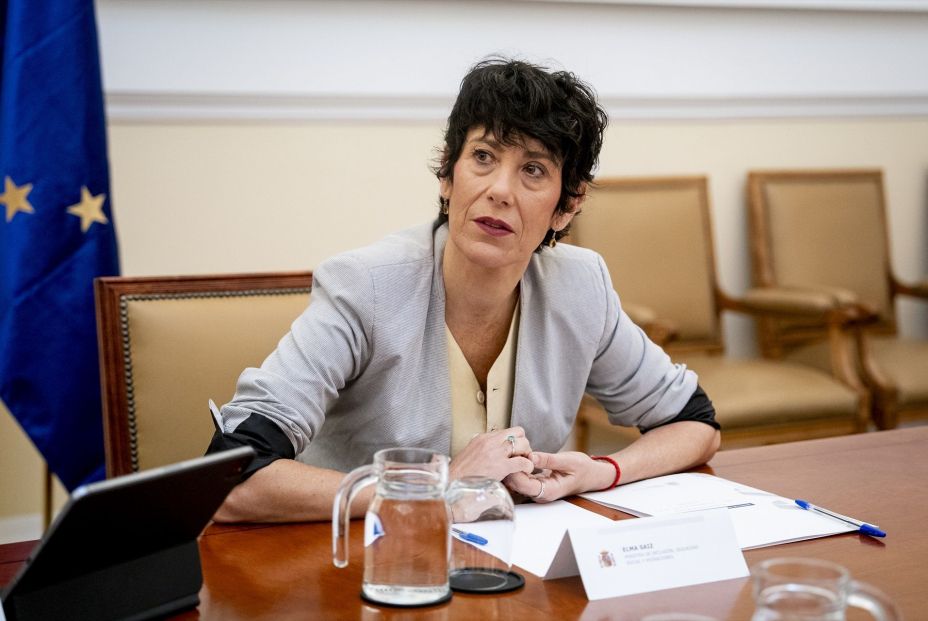The negative reactions continue, anger and rejection of the self-employed and political groups to the proposal of the Ministry of Inclusion, Social Security and Migrations of raise the fees to the collective starting in 2026.
Both the main organization of self-employed workers, ATA (@autonomosata), as UATAE (@uatae_es) are strongly opposed to new sections and installments that he Government has presented and that it must be debated at the Pension Social Dialogue Table (where the UGT and CCOO unions also participate, plus the CEOE-Cepyme employers’ association).
UPTA (@upta_es), more moderate in his criticism of the quota table, denounces the “authentic fiscal ordeal” suffered by the self-employed group. Your president, Eduardo Abad, considers it imperative to change the tax model, denouncing that “there is a differential of almost 20 points between the taxation of self-employed individuals and that of those businessmen who pay taxes through Corporate Tax.”
In addition to tax inequality, Abad states that Self-employed workers are not entitled to deductions for various expenses inherent to their activity. Specifically, “they lack deductions for maintenance, mileage, expenses inherent to the activity, or the use of a vehicle. Nor do they have the deductions that large companies do have in terms of corporate social responsibility.”
The president of UPTA asks do not confuse social protection (through the quotation system) with taxes, and believes it is a priority to improve taxation, an area where the self-employed “are treated completely differently from large and medium-sized businessmen.”

UATAE: “The lowest income brackets are punished”
For its part, the Union of Associations of Self-Employed Workers and Entrepreneurs (UATAE) denounces that the plan presented by the ministry “breaks the spirit of contributory justice” and warns that, From 2026, the most vulnerable self-employed people would pay more than at present.
The organization argues that the new model does not move towards a true quote for real income, but rather “consolidates a more expensive, more unequal system with the same lack of protection that the collective has been carrying for decades”.
Even more specifically, it states that in the document of sections and quotas presented by Social Security, “the projected figures are unaffordable for a good part of the self-employed workers, especially for those with lower income. The Minimum installments are increased until you pay more than in the previous system within 6 years. If this was the big change, we don’t understand why we have transformed the model,” he says. María José Landaburu, general secretary of UATAE.
Landaburu’s strong criticism is based on the fact that this structure “it punishes the lowest sections and benefits those who earn the most,” something that “betrays the principle of progressivity and contributory justice that should inspire this reform.”
Regarding the cessation of activity, UATAE claims that, just as “an employee is not required to be broke to collect unemployment, it is enough to lose his source of income, the same should apply to self-employment.”
ATA asks to increase fees according to the CPI
In turn, ATA criticizes that the Government is failing to comply the equality in social protection included in the 2022 agreement, since the self-employed continue to lack essential rights such as the cessation of activity, with 60% of applications denied; the subsidy for those over 52 years of age, leave for breastfeeding after maternity leave, leave due to adverse weather effects or due to the death of a family member or with contribution gaps not comparable to the General Regime.
Also, remember that self-employed workers They continue to be charged the self-employed fee in case of serious illness diagnosed first 60 days and they only cover 75% of it for parents caring for minors and family members with serious illnesses, or 50% of the excess contributions in both regimes are withheld without this, when they are at maximum bases, implying an increase in their protection.
Regarding the quota increase, proposes an update of the contribution bases for the self-employed according to the current Consumer Price Index (CPI) until 2031 for the new contribution scheme that they are negotiating with the Government. instead of a “linear and predetermined rise of bases.”
This has been stated in a document on Compliance with the Real Income Contribution System, in response to the proposal of the Ministry of Social Security to raise for next year monthly installments, that are currently paid by the self-employed, who contribute minimum base between 17.37 euros and 206.24 euros, depending on their net returns.
Minister Elma Saiz defends her proposal
Given the commotion generated by the negotiation of new quotas for the self-employed from 2026, the Minister of Social Security, Elma Saiz defends the new system, agreed in 2022 and put into operation in 2023, so that the collective quote for their real income, that is, for what they charge.
Remember that the contributions “are not taxes, but go directly to the pocket of each self-employed person”, although he asks for “tranquility and calm” regarding the current negotiation of the contribution system for real income, since the Government “works to guarantee the social protection of the group.”

“Before 2022, 85% of the self-employed contributed for the minimum base. And look at a very important fact, this caused the self-employed to receive on average 650 euros less pension per month today than an employed worker. This is corrected by contributing exactly what is paid, as the rest of the workers in this country do, and this is what allows them to be protected against eventual sick leave, paternity leave or the closure of their business,” details the minister.
Saiz also emphasizes that in the regularization of 2023 quotas, that just ended, “the 60% of the self-employed who has been entitled to a refund of fees They have renounced it because they prefer to have that remainder for the future. As the system was now, an average salary who had to take advantage of the cessation of activity, that is, unemployment, earned 670 euros per month. With the proposed by the Government, their unemployment would be 1,360 euros”.


